on Bankrate
Best equipment loans in February 2026
on partner site
on BusinessLoans.com
on Bankrate
on Bankrate
on Bankrate
on BusinessLoans.com
on Bankrate
How Bankrate works

How Bankrate works
Get information about the top lenders
Bankrate selects the top lenders based on our methodology listed below. You can read our highlight sections or the longer reviews for more information on lenders you are interested in.
Get personalized rates
Click "get personalized rates" and fill out some information to see what kind of offers these lenders currently have.
Apply and get funds
If you qualify for an offer you like, you can begin the application process to get a loan for your business equipment.
A closer look at Bankrate's top equipment loans
Best for low revenue requirements: iBusiness Funding
For businesses with lower annual revenue, iBusiness Funding may be the right choice. It offers equipment loans as large as $500,000, and it only requires $50,000 in annual revenue. This makes iBusiness Funding one of the best choices on the market for new startup companies who need lots of capital to get up and running.
Pros and cons
- Approvals as little as one day
- Lower annual revenue requirement
- Timely payments build credit
- Relatively high credit score requirement
- Origination fee up to 10.49%
- Startups aren't eligible
Best for personalized funding: SmallBusinessLoans.com
SmallBusinessLoans.com is a platform that connects borrowers with lenders based on their qualifications and needs. This approach lets small business owners find an equipment loan that works specifically for them with a more personalized approach.
Pros and cons
- Low minimum annual revenue requirement
- Variety of lending partners
- Personalized funding options
- Must fill out an application to know what you qualify for
- May not be eligible for every product
- Limited information online
Best for long preapproval periods: Triton Capital
Triton Capital offers borrowers a wide range of loan terms, offering small business owners as much as $250,000 for an equipment loan. And because the company offers loans as small as $10,000, it can be a great lender for small equipment purchases as well.
Pros and cons
- Preapprovals good for 90 days
- Near-instant loan estimates
- Works with startups
- $150 to $750 documentation fee
- High annual revenue requirement
- Small max equipment loan amount
Best overall for equipment loans: Creditfy
Creditfy is our overall picks for equipment loans. With high loan amounts, generous repayment terms and minimal eligibility requirements, Creditfy goes above and beyond many of the other lenders reviewed by our experts.
Pros and cons
- Fast funding
- Flexible requirements
- Large financing amounts
- Origination fee
- Some loans are funded through partners Some products not available to startups
Best lender for newer businesses: Taycor Financial
Taycor Financial offers loans as small as $10,000 on terms as short as four months, which is perfect for smaller equipment purchases you need to make as your company is just starting out.
Pros and cons
- Low credit score requirement
- Fast access to funds
- Variety of loans to choose from
- Limited information on website
- High factor rates for some loan types
- Documentation fee may apply
Best for large loan amounts: SMB Compass
If you need to make a large equipment investment, SMB Compass could be a good fit. It offers loans as large as $5 million for qualified borrowers and is ideal for established companies looking to overhaul their equipment.
Pros and cons
- Offers nine types of loans
- Low starting rates
- High borrowing limits
- Closing fee of 1% to 3%
- Uses factor rates for some loans
- Some loan types take weeks to fund
Best for established businesses: Bank of America
Bank of America has physical branch locations in almost every state, so it's a good choice if you want face-to-face interaction and guidance when it comes to signing on for an equipment loan. This is a notable advantage over online lenders if you prefer hands-on guidance.
Pros and cons
- No max on loan amount
- Physical locations
- Free business credit score
- High annual revenue requirement
- High minimum funding amount
- Maximum interest rate not disclosed
Best for equipment leasing: National Funding
National Funding finances and leases equipment for businesses of all sizes. It can be a good option for newer businesses, although your business will need to have an annual revenue of $250,000 or higher to qualify.
Pros and cons
- Access to high loan amounts
- Fast funding
- Funding specialists available to help
- Limited information on website
- $250,000 minimum annual revenue required
- Potentially high interest rates
How Bankrate chose our best equipment loan lenders
Bankrate's trusted small business loan industry expertise
57
years in business
30
lenders reviewed
22
loan features weighed
770
data points collected
What is an equipment loan?
Business equipment loans are a type of term loan that is used to purchase large-scale equipment for business use. Equipment loans can help you purchase point-of-sale systems, commercial trucks, farming equipment, manufacturing machinery or medical devices.
Most equipment loans use the equipment as collateral, securing the loan with the guarantee the lender can take and sell the equipment if the borrower defaults. While this puts your equipment at risk, you may have an easier time getting approved or getting a lower interest rate than you would with an unsecured business loan.
Equipment loans vs. equipment leases
Equipment loans are different from equipment leases in that you can own the equipment after you pay off the loan. Equipment leases, on the other hand, require you return the equipment after you’re finished with the lease term.
Equipment loans and leases can have different advantages. Equipment leases may come with a lower payment and have lower requirements, which can be a good option if you’re starting out or if you don’t intend on keeping the equipment at the end of the term.
While equipment loans can have higher requirements and payment amounts, once you’ve paid off the loan, you fully own the equipment and don’t have to pay it down any more.
Types of equipment loans
There are several types of equipment loans, including leases and options backed by the SBA. The option that works best will depend on the equipment you need and the structure of your business.
How to get an equipment loan through Bankrate
Follow these steps to help guide you through the equipment loan application process.
1. Determine what type of equipment loan you need
Equipment loans are available from banks, online lenders and third-party companies that specialize in equipment financing, all with distinct advantages. While banks and credit unions are likely to offer the lowest rates and most favorable terms, it can be helpful to work with specialized lenders who are familiar with a variety of different business equipment and any nuances.
Once you decide on a lender, you may also choose between term loans, SBA loans or business lines of credit. Term loans and SBA loans offer some of the most affordable options, but using a business line of credit may help you access financing faster.
At this point, you should also consider if equipment leasing is a viable option for your business, especially if you anticipate that you’ll need new equipment after a few years.
2. Calculate how much debt your business can take on
Use Bankrate’s business loan calculator to determine how much debt you can afford based on the monthly payments. Understanding exactly how much an equipment loan will cost you can prevent you from overstretching your business, and improve your chances of approval.
3. Make sure you meet requirements
Requirements for equipment loans vary by lender; however, you can generally expect to meet the following requirements:
- Minimum of two years in operation, although some direct lenders lend to new companies.
- Annual revenue requirements between $50,000 to $250,000.
- Personal credit score minimum of 650, though direct equipment financing companies may accept personal credit scores as low as 510.
In addition to these requirements, lenders will also likely confirm that your business has sufficient cash flow to cover monthly payments and request that you provide business documents like business bank statements and tax returns.
Finally, a lender will likely appraise the equipment you are purchasing to make sure it is sufficient to cover the amount of the loan.
4. Prequalify through Bankrate
Prequalifying for an equipment loan through Bankrate can save you time by helping you compare multiple offers in one place, and offers other benefits such as:
- Instant prequalification based on your credit profile.
- No hard credit pulls.
- Expert insights based on unbiased reviews.
- A business profile you can return to later in your application process.
Pros and cons of equipment loans
To help you determine if business equipment loans are right for you, below are some pros and cons to consider.
Pros:
- Quick funding: Lenders are able to process your application and fund your loan quickly. Some are even able to offer same-day funding.
- Collateral: You typically don't need additional collateral other than the equipment you are financing through the loan.
- Flexibility: Equipment loans can be a good way to access equipment you otherwise could not afford.
- Ownership: Unlike a lease, once you’ve paid off your loan, you get to own the equipment.
- Builds credit: Most lenders report payments to credit agencies, which could boost your credit score and help you build business credit.
Cons:
- Limited financing: You can only use equipment financing to buy or lease a specific piece of equipment for your business. Other costs may require a different loan.
- Equipment requirements: Your lender will have to approve of the equipment you take out a loan on.
- Down payment: An equipment loan may require a down payment, sometimes as much as 20 percent of the total cost.
- Potentially high rates: Equipment loan rates may be high, especially if you have a low credit score or limited time in business.
- Term length: If the equipment fails within a few years, the loan could outlive the asset. Ensure your loan term is shorter than the expected lifespan of the equipment you plan to finance.
How to compare equipment loans
If you’re struggling with your decision, use these comparison metrics to help you narrow down your options.
Type of lender
If you have multiple offers from different types of lenders, consider the benefits of each. Banks and credit unions may help you build a strong business banking relationship, especially if you hold accounts at those institutions. Online lenders typically have streamlined applications and loan management, which can add convenience through the life of your loan. Third-party equipment financing companies may offer more specialized expertise, and understand the nuances of a variety of equipment types.
APR
Annual percentage rate (APR) includes the interest rate and any fees associated with taking out the loan. Make sure you understand the total cost of borrowing with each lender when you are making your comparisons. One lender with a lower rate may charge fees that bring the total cost of borrowing above a lender with a slightly higher interest rate, but lower fees.
Qualification requirements
Understanding where your business falls with regards to each lender’s qualification requirements can help you narrow down your options. Banks will typically have stricter requirements than online lenders and equipment financing companies.
Funding speed
Make sure you know your timeline and how quickly a lender can fund your loan to avoid missing out on an opportunity to capitalize on a good deal. If you are on a tighter timeline, it’s also a good idea to let your lender know.
Down payment requirements
Even though your equipment loan is secured by the equipment you’re purchasing, you may still be required to make a down payment of 10 to 20 percent. Knowing what you can afford and what each lender requires can help you narrow down your options.
Alternatives to equipment loans
If you decide a business equipment loan isn’t for you, you can look into alternatives for equipment loans.
Frequently asked questions
- Small business loans
- Personal finance




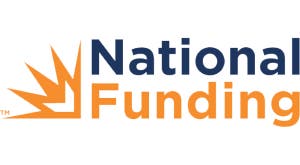
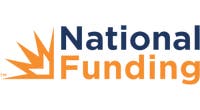


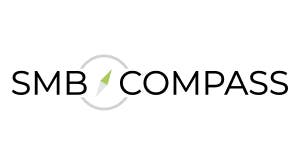
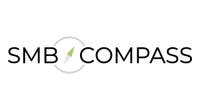
.png?optimize=medium&format=pjpg&auto=webp)
.png?optimize=medium&width=200&format=pjpg&auto=webp)
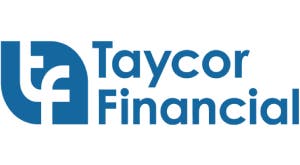
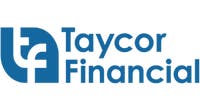
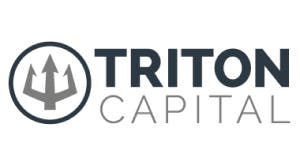
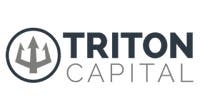








.png?auto=webp&fit=&width=200&format=pjpg)

